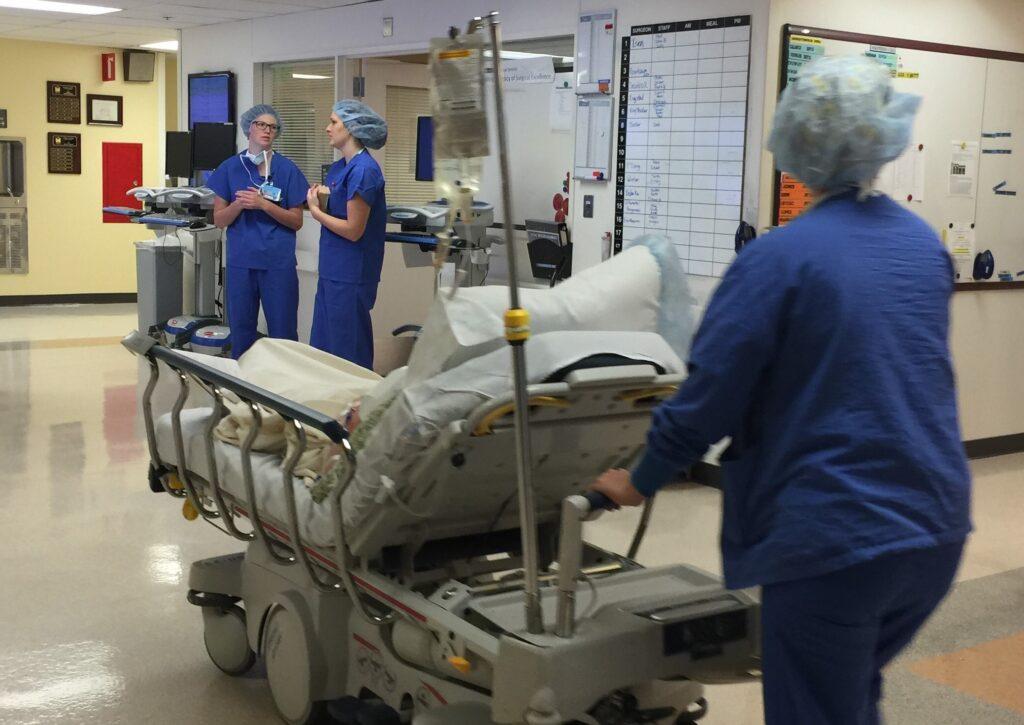
Some Oregonians will save tens of thousands of dollars – and in some cases hundreds of thousands of dollars – in medical costs this year under a new federal law.
The No Surprises Act, which went into effect Jan. 1, prevents insurers from charging clients extra for out-of-network providers or services in hospitals. The law applies to emergency care, airlifts to emergency departments and hospital care. The law marks a major step forward for consumers and will keep many people from sinking deep into medical debt, advocates say.
Health care policies set rates for coverage, for example, paying 90% of hospital care or $100 for an emergency department visit. Policies also set deductibles, which cap out-of-pocket expenses.
But deductibles usually only apply to in-network providers who have signed a contract with the insurer, agreeing on rates. Out-of network providers set their own charges, and they’re not limited by the deductible which means patients have to pay much more than they expected. In recent years, there have been multiple stories about patients who’ve been saddled with astronomical bills they weren’t expecting because their insurer charged them extra for out-of-network services, like an anesthesiologist. People have had to take out loans to pay the bills, piling up debt. Experts estimate that one in five patients have been hit with a surprise medical bill.
That won’t happen at hospitals anymore provided patients are treated at in-network facilities.
The law applies to emergency rooms, freestanding emergency departments and urgent care facilities licensed to provide emergency care. It includes emergency and non-emergency care in in-network hospitals including surgeries.
The law applies to insurance policies, including renewals, that went into effect this year. They include private plans offered by employers – which account for most coverage and plans sold on the federal marketplace. It also applies to insurance for state employees, teachers and their dependents.
Philip Schmidt, a spokesman for the Oregon Health Authority, said that the Public Employees’ Benefit Board and the Oregon Educators Benefit Board, which together cover nearly 300,000 people, will “be responsive to member complaints about violations of this new legislation and work with our plans to make sure these issues are resolved proactively.”
Besides banning out-of-network surcharges, the law requires hospitals to give cash-paying patients a good faith estimate before treatment – something that was sometimes difficult to obtain in the past. Providers cannot bill for more than $400 over their estimate.
The law does not affect patients covered by Medicaid or Medicare, which already banned the out-of-network surcharges, a practice known as balanced billing.
There are some exceptions, however. The law does not apply to birthing centers, out-patient clinics, hospice, addiction treatment facilities, nursing homes or urgent care centers that don’t provide emergency care.
It also has another loophole. It does not cover ground ambulances. Ten states give patients some protection from a surprise bill from a ground ambulance – but not Oregon, Washington, Idaho or California.
“This is still a work in progress,” said Maribeth Guarino, health care advocate for OSPIRG, the Oregon State Public Interest Research Group.
OSPIRG suggests that patients ask, when possible, whether a service or provider is in-network.
One thing to note: When scheduling treatment in advance, some out-of-network providers may ask patients to sign a “Surprise Billing Protection Form.” By signing the document, patients agree to pay out-of-network charges. The form must include a good faith estimate with itemized costs and usually is provided three days in advance of the treatment. The form should also include a list of in-network providers who can provide the same care.
OSPIRG advised patients to think carefully before signing the form. Doing so means they are signing away protections under the No Surprises Act.
Emergency physicians or emergency departments, assistant surgeons, anesthesiologists, radiologists, hospitalists, or physicians employed by a hospital, and intensivists, who are certified to treat critically ill patients, are not allowed to ask patients to sign the waiver.
Patients who think they’ve received an improper bill should contact the provider and their insurer as soon as possible. They can also complain at the federal Centers for Medicare & Medicaid Services or call 800-985-3059.
Oregon Capital Chronicle is part of States Newsroom, a network of news bureaus supported by grants and a coalition of donors as a 501c(3) charity.